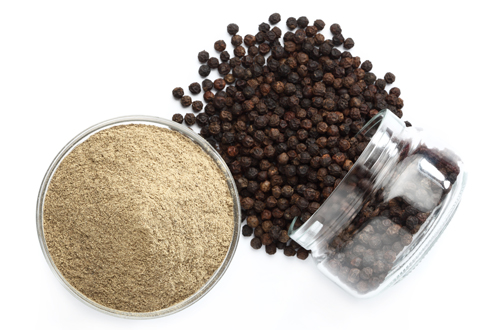
Piperine
NOMENCLATURE:
Botanical name / Scientific Name: Piper nigrum
Common Name: Black pepper, Peppercorns
STANDARDIZED:
Piperine
GRADES:
95%
ANALYTICAL METHOD:
a) High Performance liquid chromatography (HPLC) Peppercorns are the seed berries of the Piper nigrum (piper being Latin for plant, and nigrum meaning black) vine, originating on the Malabar coast of India. Peppercorns are not only the oldest used spice, but also the most widely-used. Said to be found more than 4,000 years ago, peppercorns were cultivated as long ago as 1000 B.C. Today, pepper, known as the King of Spices and the Master Spice, still accounts for one-fourth of the world's spice trade. Tunisians lead in pepper consumption with half a pound per person per year, whereas Americans consume about one-quarter pound per year.
Function:
- Piperine used as aromatic, stimulant, stomachic and carminative.
- Black pepper oil can be used to help in the treatment of pain relief, rheumatism, chills, flu, colds, increase circulation, exhaustion, muscular aches, physical and emotional coldness, nerve tonic and fevers.
- It furthermore increases the flow of saliva, stimulates appetite, encourages peristalsis, tones the colon muscles and is a general digestive tonic.
- Sometimes it is used in place of cubebs for gonorrhea. As a gargle it is valued for relaxed uvula, paralysis of the tongue.
- It will correct flatulence and nausea. It has also been used in vertigo, paralytic and arthritic disorders.
- Externally it is used for its rubefacient properties and as a local application for relaxed sore throat and some skin diseases.
- Its oleoresin has bacteriostatic and fungistatic properties.
